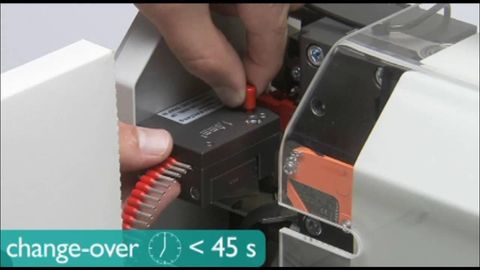Discover the Best Industrial PC Services: Details, Facts, and Expert Advice
Industrial PC (IPC) services encompass the design, deployment, and maintenance of specialized computing systems tailored for demanding industrial environments. Unlike standard consumer PCs, industrial PCs are engineered to withstand extreme conditions such as high temperatures, humidity, vibration, and dust. They play a crucial role in automating processes, monitoring systems, and collecting data in sectors like manufacturing, energy, transportation, and logistics.
These systems are integral to the concept of Industry 4.0, where automation, data exchange, and real-time analytics converge to enhance operational efficiency and decision-making.
Why Industrial PC Services Matter Today
The significance of industrial PC services has surged due to several factors:
-
Automation and Efficiency: IPCs enable the automation of complex processes, reducing human error and increasing productivity.
-
Data-Driven Decisions: With real-time data collection and analysis, businesses can make informed decisions promptly.
-
Harsh Environment Compatibility: Their rugged design ensures reliable operation in challenging industrial settings.
- Integration with Emerging Technologies: IPCs facilitate the adoption of technologies like IoT, AI, and edge computing, driving innovation in various industries.
These services are vital for industries aiming to modernize operations, enhance safety, and maintain competitiveness in a rapidly evolving technological landscape.
Recent Developments in Industrial PC Services
The industrial PC sector has witnessed notable advancements in the past year:
-
AI Integration: Companies like Siemens have introduced IPCs equipped with NVIDIA GPUs, enhancing capabilities for AI applications in industrial settings.
-
Modular Designs: New modular IPCs offer flexibility, allowing businesses to customize systems according to specific needs, particularly beneficial for automation and IIoT applications.
-
Regulatory Changes: In India, the government has implemented restrictions on the import of certain IT hardware products, including IPCs, to promote domestic manufacturing.
-
Market Growth: The global industrial PC market was valued at approximately USD 5.42 billion in 2024 and is projected to reach USD 7.75 billion by 2033, reflecting a compound annual growth rate (CAGR) of 4.02%.
Regulatory Landscape Affecting Industrial PC Services
In India, the regulatory environment has evolved to encourage local manufacturing and reduce dependency on imports:
Import Licensing: As of 2024, the Indian government requires companies to obtain licenses for importing laptops, tablets, and personal computers, including IPCs. This move aims to bolster domestic production and innovation in the IT sector .
Safety Standards: The Bureau of Indian Standards (BIS) has introduced the Omnibus Technical Regulation (OTR) Order, 2024, mandating BIS certification for a wide range of machinery and electrical equipment, including IPCs. This regulation, effective from August 28, 2025, seeks to enhance product safety and align with global standards .
Tools and Resources for Industrial PC Services
For businesses seeking to leverage industrial PC services, several tools and resources are available:
-
OnLogic: Offers a comprehensive guide on industrial PCs, detailing their applications and benefits in various industries.
-
Corvalent: Provides insights into the basics of industrial PCs and their role in manufacturing and automation.
-
DaisyData: Presents a selection guide for industrial PCs, assisting businesses in choosing the right systems for their needs.
-
Intel: Supplies information on industrial PCs built on Intel® architecture, supporting Industry 4.0 capabilities.
-
BIS Portal:The Manakonline portal facilitates the certification process for machinery and electrical equipment, including IPCs, in compliance with the OTR Order.
Frequently Asked Questions
1. What differentiates industrial PCs from standard consumer PCs?
Industrial PCs are designed to operate reliably in harsh environments, offering enhanced durability, extended temperature ranges, and resistance to dust and vibration. They also support long-term availability and customization to meet specific industrial requirements.
2. How do industrial PCs contribute to Industry 4.0?
By integrating with IoT devices, industrial PCs enable real-time data collection and analysis, facilitating predictive maintenance, process optimization, and seamless communication across automated systems.
3. Are there any certifications required for industrial PCs in India?
Yes, under the Omnibus Technical Regulation (OTR) Order, 2024, industrial PCs must obtain BIS certification to ensure compliance with safety and quality standards .
4. What are the benefits of modular industrial PCs?
Modular industrial PCs offer flexibility, allowing businesses to customize systems with specific components such as processors, memory, and storage, catering to unique operational needs.
5. How can businesses stay updated on regulatory changes affecting industrial PCs?
Businesses can monitor updates from relevant authorities like the Bureau of Indian Standards (BIS) and the Directorate General of Foreign Trade (DGFT), and engage with industry associations to stay informed about regulatory developments.
Conclusion
Industrial PC services play a pivotal role in modernizing industrial operations, offering solutions that enhance automation, data processing, and system reliability. Understanding the regulatory landscape and leveraging available resources can aid businesses in effectively integrating these technologies to achieve operational excellence.





